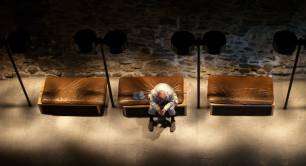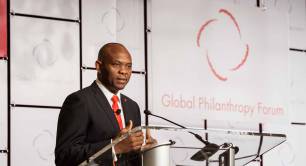Dealing with depression the StrongMinds way
It is estimated that depression affects more than 60 million African women, yet support for people with mental health issues across the continent is minimal. Fergal Byrne explains why StrongMinds is providing a lifeline for many women.
Statistics show that between 76% and 85% of people with severe mental disorder in low and middle-income countries receive no treatment. In Africa, the impact on families is particularly pronounced when women are suffering from depression.
Culturally, women are the backbone of African families. Research shows that when an African mother is affected by depression, her entire family suffers; her children have poor health, they attend school less regularly and her income can dwindle. The problem is thought to affect more than 60 million African women, so the wider impact can be hugely detrimental.
One organisation which is working to help depressed African women in a simple and cost effective way is StrongMinds. Founder Sean Mayberry spent 10 years working and living in Africa, mostly focused on physical health issues like HIV, AIDS and malaria. During that time, he became aware and frustrated by the lack of access for Africans who suffered from mental illness: “I could see the toll it took on the women themselves and on their families and communities.”
StrongMinds was specifically set up to improve the mental health of women in Africa and Mayberry says it is unique in being focused on depression: “It’s a huge mental illness for African women and we are really the only organisation in Africa that is singularly focused on this.”
How it works
Depression is combatted with group interpersonal psychotherapy, more commonly known as group talk therapy. Groups of 10 to 12 depressed women are brought together with a group leader from the community. This leader is not a professional but someone employed and trained by StrongMinds, a peer of the women who will be attending the group. Women attend the group talk therapy for an hour a week for 12 weeks and results have proved exceptional. More than 1,700 women have participated and more than 90% of those women are what Mayberry calls ‘depression free’ by the end of the therapy.
StrongMinds trains its own people for a couple of reasons. There are very few mental health professionals available in Africa. To use Uganda as an example, there are only 30 psychiatrists in a country of 40 million people. By comparison, in the United States, there are 30 psychiatrists in just a couple of city blocks in New York.
StrongMinds also trains its own people to ensure a level of culturual understanding and awareness. “Even if you had available mental health experts from developed countries, they would not have the cultural understanding necessary to identify the people living with depression or to connect with them at the level they need. That requires someone from within the community, someone with a knowledge of the people they’re working with,” says Mayberry.
Group leaders undergo two weeks of training in a classroom, followed by a year of on the job training conducting therapy groups. Doesn’t treatment for depression usually take longer? “There are other therapies that can be used to treat depression,” says Mayberry, “but they are more difficult to train in and can take months and years to develop the skills. This therapy method was actually initially found to be effective in Africa in a control trial in 2002. It’s very effective in the African setting where people culturally come together in groups.”
Impact
What’s impressive is the wider social impact of intervention. An evaluation of the success of the effort demonstrated a 92% reduction in depressive symptoms; a 67% reduction in unemployment and a 22% increase in self-employment. On top of that there was a 63% increase in a participant’s ability to save income and a 245% increase in women eating three meals a day. All for a treatment that costs around $150 but will certainly get cheaper as the initiative rolls out and economies of scale are reached.
Of equal importance is the influence StrongMinds work is having. It has galvanised the World Health Organization (WHO) to renew its push for all African health ministries to use this therapy to treat depression – based on the findings of StrongMinds. In the battle for equality of healthcare between developed and developing nations, StrongMinds is striving to ensure that everyone is included.
Photo credit: StrongMinds



